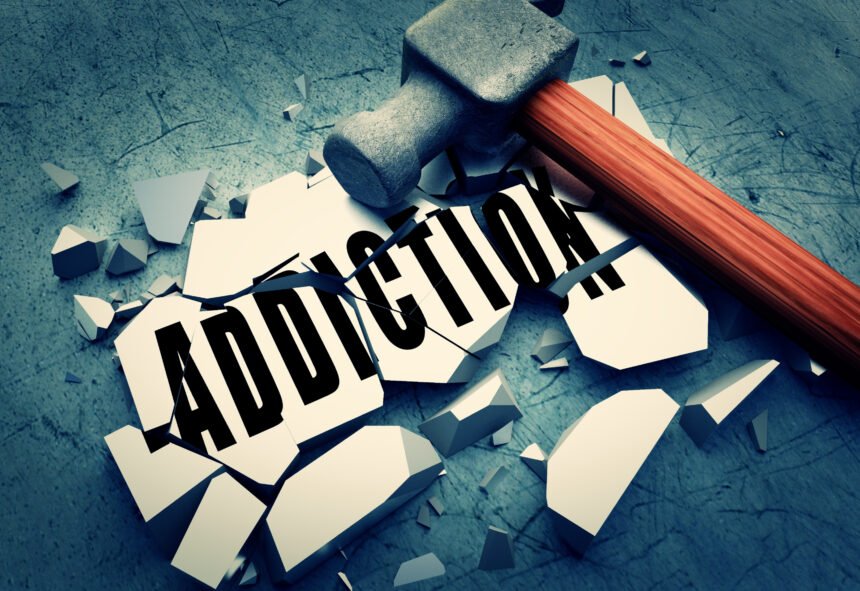Helping Or Harming?
Living with someone who struggles with addiction is difficult. You see them make choices that destroy their health, their relationships, and their future. Your never know what they?re going to do next, and your fear for the future is based on what you?ve seen them do in the past. It?s possible they might break the law, embarrass you in public, harm your finances, and even endanger their life or someone else?s. You love them, and you want to protect them. You also need some feeling of control and stability for your own sanity. Often, the things people do to cope with addiction create unhealthy relationships that actually make the problem worse.
Loving vs. Enabling
Sometimes your desire to fix the problem actually enables substance abuse, rather than helping. While your intent is to protect your loved one and hopefully keep them from descending further into addiction, you might be absorbing the brunt of the pain caused by their substance abuse. Love wants the best long-term outcome. Enablement seeks to cushion individuals from the consequences of their behaviors. Here are some things you may be doing that hurt rather than help: You might take care of their responsibilities for them. If your loved ones blow their money and doesn?t have enough to pay their bills, you might think it?s the compassionate thing to help them keep their electricity on or put gas in their car. You worry if you let them go without, they?ll go hungry, get sick, or worse. You make excuses for them. If you call in for them when they won?t wake up and go to work, manufacture a plausible lie, or explain bad conduct as the result of stress, you keep them from experiencing the consequences of their behavior. You don?t follow through. When you?ve had enough, you are ready to walk out the door, and your loved one senses you?re serious. You say you?ll never bail them out again or that next time you won?t be there in the middle of the night. They beg, plead and bargain, and might even change their ways for a little while. You put up with a gradual return to previous behavior and they never actually experience what you threatened. You feel like you?re the one responsible for bad behavior. You might wonder if you just hadn?t used that tone or if you had prevented that stressor, maybe they wouldn?t have been so tempted toward substance abuse.
Enabling And Children
It can be especially difficult to let children experience the consequences of their mistakes. When they were small, it was your job to wipe away tears, put Band-Aids on skinned knees and be the shoulder to cry on whenever they needed. When parents learn that a child is struggling with addiction, they?re first shocked, then flooded with feelings of guilt and dismay. Your fears are compounded as you realize a child might literally kill himself or herself by overdosing on a substance or operating a vehicle while under the influence. When the potential consequences are so unthinkable, it?s hard to step outside your pounding fear and assess what?s best for your child. You pay their expenses, clean up their messes and do everything you can to keep them out of legal trouble.
Four Types Of Codependent Behavior
When one person relies on another to meet all of their physical and emotional needs, the relationship is codependent. The person trying to help makes it easier for their loved one to continue in the cycle of addiction. Here are four ways codependency normally manifests in relationships: Avoidance ? People abusing drugs and alcohol don?t want to take responsibility for their behavior. Enablers ignore what they know to be true and tell themselves the problem will go away. Parents might make excuses for their child?s dropping grades and new peer group as just a phase and hope things will improve. Enabling ? Some family members acknowledge their loved one has a problem, but refuse to accept how they make it easier for them to avoid negative consequences. Parents who repeatedly bail a child out of jail and pay for legal representation allow their child to continue to have access to drugs and alcohol. Enmeshment ? When family members hide their own feelings, they shield those struggling with addiction. They feel like they need that person for their identity, safety and security. Mothers and fathers don?t want to burden children with their own grief or risk losing their love, so the child doesn?t see what it?s doing to others. Controlling ? Parents tell their children what to do from infancy, and they often try to continue to do so in the face of addiction. They feel like if they can know everything their child does, thinks and wants, they can manipulate them into stopping the behavior.
Evaluating Codependency
If you engage in enabling your loved one or find yourself displaying one of the four types of codependent behaviors, you might be part of what?s keeping them from seeking recovery. People in a codependent relationship often suffer from low self-esteem, difficulty setting boundaries, dependency, feelings of abandonment and other painful emotions. Online resources such as a codependency checklist can help you evaluate how your behaviors relate to your loved one?s addiction. Find out if you?re keeping them from entering recovery, when it?s time to stage a family intervention, and how to encourage them to seek help on their own.
About Family First Intervention
Family First Intervention has accredited substance abuse interventionists dedicated to both helping save people from their addictions and supporting families throughout the healing process. Family First Intervention works in all 50 states to equip families to help their loved ones overcome addiction.

